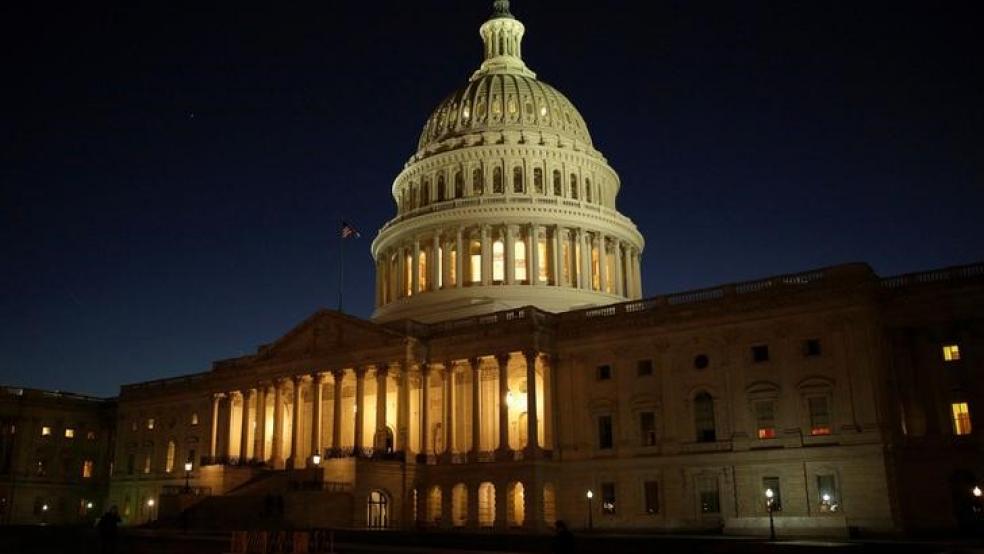WASHINGTON (Reuters) - The U.S. House of Representatives approved a bill to provide disaster aid, extend the debt ceiling and fund the federal government for three months on Friday, delivering on President Donald Trump's surprising deal with Democratic congressional leaders.
The bill, which set off criticism from conservative members of Congress, now goes to the Republican president, who is expected to sign it quickly. It was approved by the Senate on Thursday.Lawmakers rushed to approve the legislation, which provides $15.25 billion for emergency disaster aid, before government disaster aid runs out at week's end as Americans deal with two deadly hurricanes including Irma, a potentially catastrophic storm poised to strike Florida on Sunday.Hurricane Harvey, which came ashore on Aug. 25 as the most powerful hurricane to hit Texas in more than 50 years, killed about 60 people, displaced more than 1 million and the state governor has said it caused up to $180 billion in damage.The bill, which passed the House in a 316-90 vote, has raised questions about the relationship between Trump, a political outsider who took office in January, and Republican Party regulars. He has frequently criticized Senate leader Mitch McConnell and House Speaker Paul Ryan and his deal on Wednesday with the top Democratic congressional leaders, Senator Chuck Schumer and Representative Nancy Pelosi, was especially troublesome for conservative members.Conservatives' souring relations with the administration are likely to remain a factor as Congress and the White House must negotiate the debt limit and government spending again by a Dec. 8 deadline.Before the vote, U.S. Treasury Secretary Steven Mnuchin and White House budget director Mick Mulvaney had made their case to Republican lawmakers at a meeting on Friday morning and it was not well received by some."There's a lot of disappointment in the decision the president made and the way our leadership was treated," House Republican Representative Hal Rogers said of the meeting. "That's a sore spot. It’s not a happy camp.""There was some hissing and I don't know if there was some booing but there were some groans," Republican Representative Mark Walker said.More moderate Republicans welcomed the bipartisan approach."If we can reach across the aisle, we can get things done and not be held hostage by 30 or 40 people," said Representative Peter King. "... You can’t just have one party govern."Asked about the prospects of a conservative revolt against House Republican leadership, King said: "You're talking about a minority that hopefully is going to be isolated more and more."HURRICANE AIDThe bill was passed as massive Hurricane Irma bears down on Florida and while Texas struggles to overcome record flooding from Harvey, which hit two weeks ago.The $15.25 billion in emergency funding includes $7.4 billion for the Disaster Relief Fund at the Federal Emergency Management Agency (FEMA), $450 million for the Small Business Administration's disaster loan program and $7.4 billion for the Community Development Block Grant program at the Department of Housing and Urban Development.Some conservative groups had objected to coupling a debt-limit increase with the emergency funds but McConnell moved ahead with the bill at Trump's urging.Walker said Mnuchin gave conservatives little hope that the Trump administration would fight to include the spending restrictions they want to see in the next debt ceiling increase in December.In Wednesday's meeting with congressional leaders, Trump had sought to work out a deal to attach to the disaster funding two short-term, three-month measures to fund the federal government at current levels and extended its borrowing limit, known as the debt ceiling. Current government funding was set to expire at the end of the month, with a possible government shutdown looming, and the U.S. Treasury had asked Congress to immediately raise the debt limit. Some House Republicans balked at the scope of the deal attaching the two crucial fiscal measures, calling it a win for Democrats.Republicans had wanted to raise the debt ceiling for a longer period that would have extended past the 2018 midterm elections. Trump sided with the Democrats, who favored a short-term extension.Republican Senator Ben Sasse said on Thursday the deal makes Schumer "the most powerful man in America for the month of December." (Reporting by Amanda Becker and Richard Cowan; Additional reporting by David Morgan; Writing by Bill Trott; Editing by Tom Brown)Congress sends Trump disaster aid, debt limit increase

Joshua Roberts

